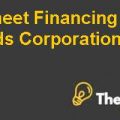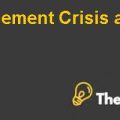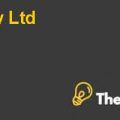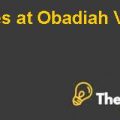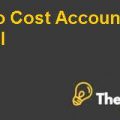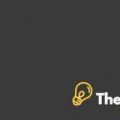
Accounting theories: useless or useful?
It is seen that accounting is just not a universal phenomenon that helps accountant to keep their books up-dated; but it is some kind of a pre-conceived notion that comes into existence as soon as any theory comes up. To be precise, accounting theories that have been published and followed by the earlier writers reflect the state of mind in which the writer was. Therefore, from this very fact it can be said that accounting theories reflect the thinking of writer and his own needs which should not to be looked into depth. However, accounting theories also have an advantage. It provides foundation to the ways for the reporting of numbers regardless of the fact that they reflect a mind-set that is surely not the one which aligns with that of ours. To study accounting, one need to study from where it was derived for example even now we do study that before the advent of computers; the only thing that used to pave our way out was, Abacus.
So first of all what is an accounting theory. An accounting theory is one which guides the way of accountants in reporting their financials in the books of accounts; in short it directs them the ways of book keeping. There are many theories of accounting but the basic ones that seem rock layer for the accounting theories are; classical inductive theories, income based theories, decision making theories and economic theories. Further, some writers have also given some accounting theories like the neo-classical accounting theory of Fisher and Marx, which reflects capitalist frame of mind. Classical inductive theories are investigative in nature such that these theories try to gauge the earlier nature and roots of the theories through gum shoe type of research. In addition it tries to induce the derived standard. The income based approach is one that guides how the profits need to disclosed, and what are the dos and don’ts within the ethical limitations of reporting the profits. Next the decision making approach as the name indicates, is the one which is focused primarily on reporting methods or techniques that are used to report the financials. This reporting is done in a way that is convenient to an investor so that he can make informed decisions through it. Last but not the least, comes the economic aspect of the theory which guides the accountants to treat their financials as a good that can be traded between the two parties and then they mold their financial reporting accordingly.
As said earlier, Accounting theories serve as a foundation for accountants in order to guide their reporting accordingly. Now if we look at the pyramid of the accounting theories that are a set of assumption, we will get to know that from where the rules are derived (Depicted in Exhibit 1 below). It is a complete set of assumptions that precede methodologies and methodologies precede framework (rules i.e. GAAP, Generally Accepted Accounting Principles). However, each theory is unique in its own type. For example the theories have been classified as one of the three; positive theory, normative theory and agency theory. Each has its own merits and demerits which we will be discussed specifically.
Exhibit 1:
First of all, the positive accounting theory, which is a need of time, is the interconnection of the financial information with its usage in speculating the stock market trends. Further it provides an insight on why and when managers use certain type of parameters to report their financial statements and why they forgo other techniques of reporting. This is good for both; analyzing or projecting the pro-forma prices of the stock trends (Bullish or Bearish) and predicting situations which can be best predicted through certain helpful measures versus others. It is based on empirical research which somehow confronts criticism whereas due to the optimism in the theories itself; it gained popularity and still has several supporters. However, positive accounting theory commonly known as PAT uses two theories to or is influenced by two theories namely; the game theory and the agency theory.
The game theory takes into account the dilemma, which is faced by the two participants in the market place. This means that the game theory is all about who will shoulder the burden of guilt and who will escape the punishment. This is because if the opted measure falls short in viewing everything and understanding what is required by the set forth regulations; then this will definitely demand guilt pledge from either of the two parties involved. Agency theory has its own cons that add fire to the demerits of positive accounting theory. These include the analysis of an organization as everybody wants to pursue his or her own self interest. The positive accounting theory is also attributed to add in it the cons from agency theory...........................
This is just a sample partial case solution. Please place the order on the website to order your own originally done case solution.

